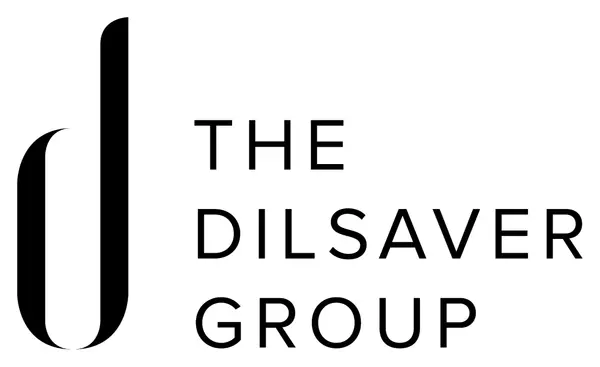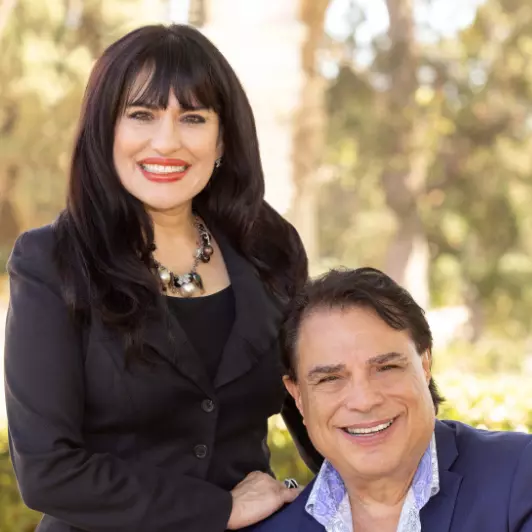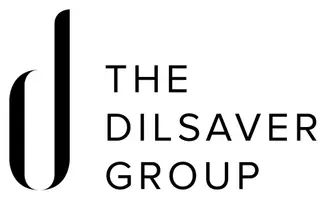5 THINGS YOU NEED TO KNOW ABOUT MORTGAGES

Are you interested in purchasing a luxury property near Pasadena, CA? Homeownership is certainly an exciting chapter in life. But navigating the mortgage process can be complex for many. Here at The Dilsaver Group, we are the leading curators of fine homes in California. If you're preparing to apply for a mortgage, read on to learn everything you need to know about mortgages before starting the process for a more seamless homebuying experience.
YOU NEED TO MEET CERTAIN CRITERIA TO QUALIFY
Applying for a mortgage is an important step in obtaining the home of your dreams. But before applying for a mortgage, you must meet certain criteria to qualify. Here are three important factors to pay attention to when applying for a mortgage:
DOWN PAYMENT
A healthy down payment is one of a few essential things to consider when applying for a mortgage. Your down payment is the upfront payment you provide to purchase a home. It's important to note that you will have a choice to decide how much money you put down. However, the larger your down payment is, the less you will need to borrow.
CREDIT SCORE
Another important factor to consider is your credit score. There are many types of mortgage programs available to buyers. With that said, each mortgage program sets its own minimum credit score requirement. The minimum credit score requirement for an FHA, VA, and USDA loan is 580. However, a conventional mortgage program requires a 620 credit score. To monitor your credit score, it's best to check with the three major credit bureaus: Experian, Equifax, and TransUnion.
DEBT-TO-INCOME RATIO
The last factor that you should pay attention to is your debt-to-income ratio. DTI provides a general understanding of your financial situation and gives lenders further insight into whether you're a risky buyer. A good DTI ratio will depend on the type of mortgage program you choose. But in general, you should aim to keep your DTI below 43% for the best success.
A MORTGAGE PREQUALIFICATION AND MORTGAGE APPROVAL AREN'T THE SAME
Mortgage prequalification and mortgage approval are often confused with one another. But it's important to note that these two terms do not mean the same thing.
A mortgage prequalification is something you receive when a bank or lender asks you questions to get a snapshot of your financial health. The bank or lender will get information regarding your credit history, credit score, debt, income, and assets. After reviewing the information you provide, the bank or lender will estimate how much money you can borrow.
Getting a mortgage preapproval comes after getting prequalified for a mortgage. Essentially, a preapproval demonstrates your creditworthiness. To get a preapproval, the bank or lender will
need to take additional steps to verify your financial health, which is why having a mortgage preapproval carries more authority than being prequalified.
In order to get preapproved, you will need to fill out a mortgage application and provide your mortgage lender with the required documentation to start the approval process. The lender will conduct a complete check of your financial history and current credit scores. Based on this information, the lender can approve you for a specific mortgage amount. A preapproval will also give you insight into the type of interest rate you may receive, which can help you with your budgeting needs.
THERE ARE MANY TYPES OF MORTGAGE OPTIONS AVAILABLE
If you're preparing to apply for a mortgage, you will have plenty of mortgage options to choose from. Each type of mortgage has its own advantages, and it's important to choose the best mortgage option to meet your needs. Below are some of the most common types of mortgages to know about.
CONVENTIONAL
A conventional mortgage is one of the most popular types of mortgage loans that a government agency does not back. The loans are originated, backed, and serviced by private mortgage lenders. For a conventional loan, there are a few requirements that you will need to meet.
For instance, most conventional loans require a credit score of 620 or more to qualify. Some conventional loans will require a down payment of as little as 3%. However, some lenders will offer 100% financing. That said, conventional loans are typically repaid in a 30-year term, but it's also possible to repay your loan in 15 or 20 years.
FHA
This is a type of loan that is insured by the Federal Housing Administration. It's important to note that FHA does not directly lend money. Instead, they back qualified lenders in the event the borrower defaults on their mortgage.
Obtaining an FHA loan has many benefits, such as the fact that there are lighter credit history requirements, options for a lower down payment, fewer restrictions on debt-to-income, and more possibilities for a better interest rate.
However, all FHA loans include a mortgage insurance premium, automatically increasing your monthly mortgage payment. MIP is an additional payment that borrowers must pay to secure their FHA loan.
USDA
A USDA loan is another type of loan option for buyers interested in purchasing a home in a rural area. USDA loans offer zero-down payment mortgages for those specifically buying a home that meets the USDA's standards of a rural area. It's important to note that there are three different types of USDA programs, including:
Loan guarantees: With this program, the USDA will guarantee a mortgage issued by a participating local lender. This allows buyers to access lower mortgage interest rates, even if they have little to no down payment.
Direct loans: This loan option is designed for buyers with low or very low incomes who want to own a home.
Home improvement loans and grants: This program allows homeowners to repair or upgrade their homes.
VA
A VA loan is a type of mortgage loan available through a program established by the U.S. Department of Veterans Affairs. This type of mortgage loan is designed for veterans, service members, and their surviving spouses who want to purchase a home with little to no down payments, no private mortgage insurance, and competitive interest rates.
YOU CAN LOWER YOUR INTEREST RATE BY BUYING MORTGAGE POINTS
Depending on your lender, you may have an opportunity to lower your interest rate by buying mortgage points. Mortgage points, also known as discount points, are fees that homebuyers pay directly to their lender. In exchange, buyers will receive a reduced interest rate. This is the same as "buying down the rate."
Buying mortgage points may be an excellent idea if you are pursuing a fixed-rate mortgage. These points will ultimately lower your monthly mortgage payment, which will help make your mortgage more affordable and help you save money.
For every point you purchase, you are buying down one percent of your mortgage. For example, one percent of $100,000 is $1,000. Not everyone chooses to buy down their rate.
It's important to spend time deciding whether this is the right option for you. You will need to determine whether you have enough funds to buy points upfront in addition to your down payment and closing costs. Another thing that you will need to consider is how long you plan on being in the home. If you need help deciding whether buying points makes sense, your lender can assist you.
PUTTING DOWN LESS THAN 20% CAN COST YOU MORE
Down payment is one of the greatest focal points when it comes to obtaining a mortgage. While different lenders will have varying requirements, putting down 20% of the purchase price is often an ideal scenario. Not only do lenders see you as less of a risk when you put down 20%, but it can also save buyers money in the long run.
Naturally, the more money you put down on your loan, the less your loan will be overall. This means that buyers can expect lower monthly payments. In addition, putting down at least 20% on a conventional loan will allow buyers to bypass private mortgage insurance, which is a type of insurance that buyers have to pay on a conventional loan if they put less than 20% of the home's purchase price.
There are a few ways to pay for PMI, but this premium is typically added to the buyer's monthly premium, which essentially increases your monthly mortgage payments.
Realistically, not every buyer can save 20% for their down payment. But it's best to start budgeting for your down payment as early as possible and save as much as possible. The more money you can put towards the purchase price of your home, the lower your monthly costs will be.
PARTNER WITH THE DILSAVER GROUP TODAY
With 45 years of experience, The Dilsaver Group is committed to helping prospective buyers find the homes of their dreams. If you're looking for properties in Pasadena, contact us today for your exclusive listing of luxury homes for sale in Pasadena, Ca.
Categories
Recent Posts








GET MORE INFORMATION

Michael Broker-Associate / Marcille REALTOR® | Lic# 00620166 | 02158588
